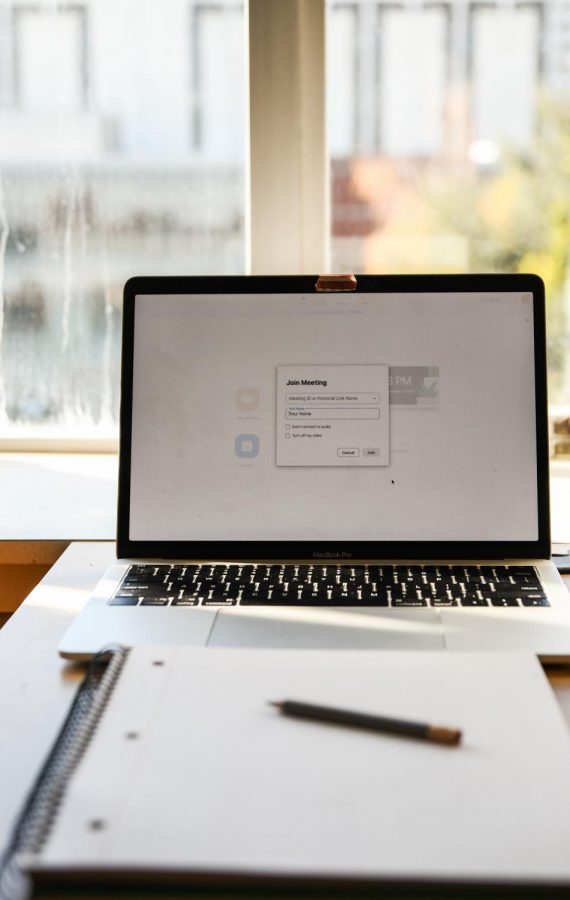Seattle U Continues to Adjust to Virtual Learning
As Seattle University students, faculty and staff continue into a second consecutive quarter of primarily virtual learning and teaching due to the ongoing COVID-19 pandemic, many campus resources are available to minimize and address technical challenges.
Amy Gifford, a third-year at Seattle U majoring in Forensic Science, explained her experience.
“Online classes have definitely had their challenges. I personally have not had any technical challenges, but my professors definitely have. It was difficult at the beginning of the quarter managing professors cutting in and/or disconnecting completely,” Gifford said.
Although Gifford is one of the few lucky students to have a smooth online experience, multiple students have had to face the difficulties that come with virtual learning. Seattle U students who encounter technical challenges are able to turn to the Service Desk or the Lemieux Library for further assistance.
The Service Desk is a resource that provides technical troubleshooting support to all members of the Seattle U community. Students or faculty in need of assistance can get in touch with a member of the team via phone, the desk website’s live chat or via email. Currently, 15 full-time Service Desk staff, as well as 30 student employees, assist Seattle U students with technological issues.
Heather Logan, manager of the Service Desk, noted that the staff has received a similar amount of calls they normally get during a quarter. The two main areas in which they have assisted other members of the Seattle U community are troubleshooting Zoom and helping people who are having trouble logging in to Canvas.
Logan explained that the staff received more calls about Zoom at the beginning of the quarter, as people were adjusting to the new security settings associated with updated Zoom licenses that allow users longer meeting times and inclusion of more participants to meetings.
Regarding Canvas, students experiencing larger problems are able to connect with the Service Desk, who directs them to the Center for Digital Learning. The Service Desk is also working alongside some faculty members to replace old computers and maximize online teaching with the right equipment.
“If the initial contact isn’t able to help, we have other staff who can step in and help,” Logan said. “We do a great job of connecting people with people who can help solve their problems.”
In addition to helping students, faculty, and staff with technical problems, the Service Desk is supporting on-campus classes and has a team entering classrooms to ensure technology is working. In addition, they are working with the Lemieux Library to distribute books, computers and hotspots to those in need, as well as small microphones for faculty to use when teaching on campus with masks.
“We are preparing for winter to be similar to now, but we have folks on campus making sure all technology is ready to go for when the larger campus reopens and all students return,” Logan said.
Lemieux Library is currently providing resources to students, both on-campus and at home. Students on campus are able to take advantage of the library during their open hours, check out books, and can use the computer labs or the study rooms. Something they were unable to do when the library was shut down for the majority of the spring quarter.
Lemieux Library Dean Sarah Watstein explained the technical resources that the library has offered during the fall quarter. Library staff released a survey at the beginning of the quarter to the student body in order to understand the technology needs of all Seattle U students. In response, the facility extended and enhanced access and affordability initiatives for fall quarter including eReserves, streaming media, technology and textbooks.
“The library has resumed select in-person services, including the resumption of select access services (circulation, Summit resource sharing); media production support for faculty (by appointment only); technology support; etc. We also further enhanced services that pivoted online in Spring Quarter,” Watstein said.
Watstein explained how the library has expanded its technology lending program.
“One of the lessons we learned during [Spring Quarter of 2020] is that there are some students whose needs are not met by a Chromebook, including, for example, Engineering students who need a device that supports drafting applications, or students who need the Adobe Creative Cloud suite of tools,” Watstien said. “In [Fall Quarter of 2020], we expanded technology lending options to address this gap in our program and meet the needs of students.”
Additionally, Lemieux Library updated its hotspot lending service, transitioning all lended internet hotspots to hotspot devices that give students unlimited data when used as hotspots. Watstein said that so far, they have lent out 65 of these this quarter.
With no signs of moving back to in-person learning, students and faculty will be likely to encounter more technological difficulties. Turning to campus resources, centers like the Service Desk and Lemieux Library must ensure that they are doing the best they can to further assist Seattle U.











